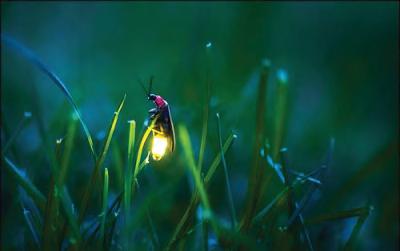
1 minute read
Fun Facts About Fireflies
from June 2020
by VIP Magazine
FUN FACTS Fireflies and Lightning Bugs
Fireflies, or lightning bugs as some call them, have always been fascinating. As a kid, it’s a goal to catch one and watch them fly around in a mason jar before releasing them back into the night sky. Even as an adult, there’s something magical about seeing them. Have you ever wondered how they light up a portion of their tiny bodies or even why they do it? Here are a few fun facts about the elusive creatures.
Advertisement

Did you know?
• There are about 2,000 firefly species. They are soft-bodied beetles and nocturnal members of the family Lampyridae. • Most fireflies are winged, which distinguishes them from other luminescent insects of the same family, commonly known as glowworms. • Fireflies have light organs that are located under their abdomens. They take in oxygen and, inside special cells, combine it with a substance called luciferin to produce light with almost no heat; it’s considered “cold light.” • Their flashing lights are mostly used to find mates.

In some firefly species, only one sex lights up; in most, however, both sexes glow. Often the males will fly while the female waits in trees, shrubs, and grasses to spot an attractive male. When she finds one, she’ll signal it with a flash. • When they aren’t flashing their lights to mate, it’s to defend their territory or to warn predators to stay away. • An adult firefly only lives long enough to mate and lay eggs. Females deposit their eggs in the ground, which is where larvae develop into adulthood. Underground larvae feed on worms and slugs by injecting them with a numbing fluid. Adults typically feed on nectar or pollen, though some do not eat at all. Their adult life is about three to four weeks. • Fireflies live in a variety of warm environments and are a familiar sight on summer evenings. They love moisture and prefer humid regions of Asia and the Americas.









